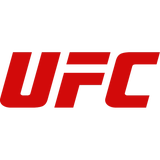
Ex-UFC fighter Chael Sonnen given two-year suspension for failing pair of drug tests
If Chael Sonnen were to come out of retirement, he wouldn’t be able to do it until 2016.
The Nevada Athletic Commission (NAC) unanimously decided to suspend Sonnen for two years following a pair of failed drug tests at a hearing Wednesday in Las Vegas. Sonnen also will have to foot the bill for the tests and cannot compete in any other jurisdiction. The former UFC middleweight No. 1 contender won't face a monetary penalty, but will have to assist the NAC in an advisory role as part of the punishment.
From the outset, Sonnen admitted his wrongdoing, accepted responsibility for his actions and gave no defense. Sonnen, 37, tested positive for banned drugs clomiphene, hCG, EPO and HGH in two different tests in June. He was supposed to fight Wanderlei Silva and then Vitor Belfort earlier this month before being pulled from the bout due to the violations.
"I don't want to say anything to you that comes off as an excuse," Sonnen said. "I am guilty. I am ashamed. I don’t have any attempt to put up a defense."
Sonnen was grilled hard by commissioners, led by Anthony Marnell, who recommended to his peers a lifetime ban for the retired fighter. One of Sonnen's contentions was that the commission's drug-testing rules are murky and he was often confused by what he could and couldn’t take and when. Marnell called it a "100 percent circumvention of the rules."
"It's not a year or two [suspension], it's 'don’t come back,'" Marnell said. "We don’t want to see you back."
Christopher Eccles, Nevada's deputy attorney general, also hammered Sonnen. He recommended the two-year suspension that the commission eventually decided on.
"This is brazen, outrageous cheating," Eccles said. "We're talking about high doses of EPO, we're talking about high doses of HGH. … You've gotta be kidding me? I can't believe that's being 100 percent truthful."
Commissioner Pat Lundvall brought up the idea of Sonnen helping the NAC in an advisory role. She preferred a more lenient penalty, without a financial hit, because Sonnen lost his job with the UFC and FOX as a broadcaster last month due to failing the second drug test.

Chael Sonnen (left, with Kenny Florian) lost his job with FOX Sports following a positive test for HGH and EPO.
Sonnen said he didn't want to mount any kind of defense for his actions. But when asked to clarify, he maintained that it was hard to discern between substances that are OK to take by law, yet banned by the commission.
"I think for a person to take a legal medication that is not a steroid and assume that is going to be allowed is a reasonable conclusion and it's not," Sonnen said. "And that's hard."
Dr. Timothy Trainor, the commission's physician, countered that he is always available to speak to fighters about what is and what is not a violation and that, in essence, is part of his job.
"If you cant read the WADA list, I don’t know what else to tell you," Marnell added. "It's pretty simple."
Sonnen (28-14-1) last fought in November, a first-round TKO loss to Rashad Evans. He was one of the biggest draws in UFC history due to his charisma and at-times outrageous trash talk. In his prime, Sonnen was one of the best middleweights in the world and challenged then-champion Anderson Silva for the title twice.
Sonnen failed a drug test for elevated levels of testosterone following his first loss to Silva, which resulted in a suspension. He was licensed by the NAC two more times after that with an exemption for testosterone replacement therapy (TRT), which was banned by Nevada and most other commissions in February.
Following the first failed test, Sonnen said on "UFC Tonight" that he took the substances once he was forced to come off TRT in order to help start a family. Sonnen's broadcasting contract with the UFC and FOX was terminated when he failed the second test for HGH and EPO, two things that could not be explained away so easily.
"The guy had four banned substances in his system," UFC president Dana White said at the time. "Four banned substances in his system leading up to a fight here in Las Vegas. ... It's a tough one. It's one of those hard decisions you gotta make. It was definitely a hard one. It was something we had to do."

